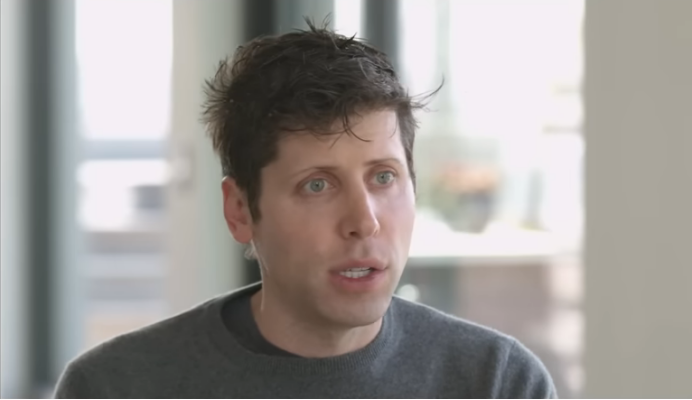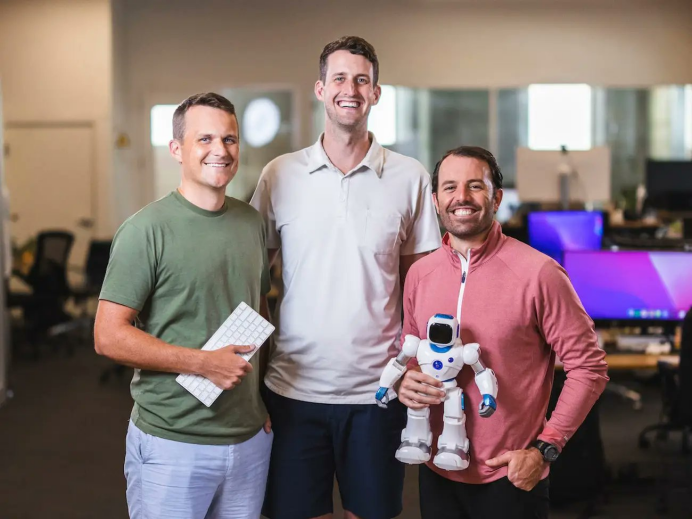Counting overseas AIGC unicorn founders, when will China迎来 its own shining moment?
Author: longcrypto, 8btc
According to incomplete statistics, there are already more than 10 global AIGC startups valued at over $1 billion. This includes OpenAI, which launched ChatGPT, and Midjourney, which became famous for "Space Opera." Who are the entrepreneurs behind these unicorns? How did they become pioneers of the era? This article will take you to find out.
OpenAI Founder Sam Altman
At 8 years old, he could program; at 20, he dropped out of Stanford to start a business; at 28, he was promoted to president of the YC incubator.
As a typical genius entrepreneur, The New Yorker described OpenAI founder Sam Altman as "the chosen one of YC, Silicon Valley, and the future of humanity."

Image source: Scale AI
In 2015, Sam Altman co-founded the nonprofit organization OpenAI with Elon Musk and others.
In 2019, Sam Altman resigned as president of the YC incubator to fully devote himself to OpenAI.
In January 2021, OpenAI created the text-to-image model DALL-E, after which many startups joined the text-to-image race.
In November 2022, OpenAI released ChatGPT, prompting Chinese tech companies to follow suit.
In January 2023, Microsoft was negotiating to invest $10 billion in OpenAI, with a post-investment valuation reaching $29 billion.
In March 2023, OpenAI officially opened the ChatGPT API, charging $2.7 for every 1 million words generated, marking the beginning of the AIGC era for everyone.
Midjourney Founder David Holz
In August 2021, former NASA neuroscientist and co-founder of AR/VR hardware company Leap Motion, David Holz, self-funded the establishment of the independent research lab Midjourney.

Image source: Forbes
In July 2022, the Midjourney project entered public beta. In August 2022, a painting generated by MidJourney based on "Space Opera" defeated numerous human competitors to win first place in an art competition.
Currently, Midjourney has 11 full-time employees, over 10 million community members, and annual revenue of approximately $100 million.
Stability AI Founder Emad Mostaque
Emad Mostaque is a Bangladeshi who grew up in the UK, graduated from Oxford University with a degree in mathematics and computer science, and worked in hedge funds in London for 13 years.

Image source: Scale AI
In 2020, Emad Mostaque founded Stability AI.
In August 2022, Stability AI released the text-to-image generation model Stable Diffusion.
In October 2022, Stability AI announced it had raised $101 million in funding, with a post-investment valuation climbing to $1 billion.
Jasper AI Founder Dave Rogenmoser
In 2011, Dave Rogenmoser graduated from Kansas State University. After graduation, Rogenmoser started several projects, but none achieved the level of financial freedom he desired.

Dave Rogenmoser (center)
In 2018, Rogenmoser's company was accepted into Y Combinator.
In 2020, OpenAI launched GPT-3, and Rogenmoser leveraged his connections at Y Combinator to gain access to the beta testing.
In January 2021, Dave Rogenmoser launched Jasper AI based on GPT-3, initially designed to help people write Facebook ads.
In October 2021, Jasper AI secured $85 million in Series A funding. In October 2022, Jasper raised $125 million, reaching a valuation of $1.5 billion.
Rogenmoser's dream has evolved from making money to providing superpowers to every company and employee on Earth and even Mars through building an AI content platform.
Anthropic Founder Dario Amodei
Dario Amodei holds a bachelor's degree from Caltech and Stanford University and a Ph.D. from Princeton University.

Image source: Future of Life Institute
Dario Amodei worked at Baidu and Google for a short time, with each stint lasting less than a year.
In July 2016, Dario Amodei joined OpenAI, serving as the head of the AI safety research team, research director, and vice president of research.
In December 2020, Dario Amodei left OpenAI.
In February 2021, Dario Amodei co-founded Anthropic with his sister, Daniela, who was the former vice president of safety and policy at OpenAI.
On February 4, 2023, Google Cloud announced a partnership with Anthropic, investing approximately $300 million in Anthropic, which will be deeply integrated with Google Cloud Platform.
Chinese AIGC Entrepreneurs
As the influence of ChatGPT continues to grow, the call for a "Chinese version of ChatGPT" is also increasing. However, aside from large companies like Baidu with technological foundations and data resources, the future of small companies seems uncertain.
On one hand, since the 1990s, domestic internet entrepreneurship has largely followed a "model innovation" approach, such as Baidu (which borrowed from Google), Taobao (which borrowed from eBay), Tencent QQ (which borrowed from ICQ), and Meituan (which borrowed from Groupon). The advantage of model innovation is that it doesn't require much thought; one can take existing technology and find a business scenario to implement it, with a short monetization path. In contrast, "technological innovation" is difficult to see results in the short term and is not cost-effective.
Over the past few decades, based on China's huge demographic dividend, "model innovation" entrepreneurial projects have been more likely to succeed.
However, with China's population experiencing negative growth for the first time in 2022, the entrepreneurial model based on demographic dividends has reached its end. The deeply rooted "model innovation" mindset that has lasted for 30 years is also difficult to change in the short term. AIGC entrepreneurs find it unfeasible to develop algorithms from scratch, and using other companies' open-source models makes it hard to form product barriers. This has led investors to be cautious about domestic AIGC, unwilling to give high valuations or even invest.
On the other hand, 2018 became a watershed year for domestic internet entrepreneurship. In that year, the once-booming internet financial innovation P2P platforms faced a series of collapses, long-term rental apartments experienced multiple defaults, and the darlings of the sharing economy, Mobike and Ofo, either sold out or went bankrupt, while Chinese companies listed in the U.S. faced significant losses. Factors such as great power competition, financial deleveraging, a capital winter, and the disappearance of demographic dividends made 2018 a turning point in the era, changing the mindset of young people and entrepreneurs.
After three years of hard battle against the pandemic, the employment and entrepreneurial atmosphere has changed. When the once-revered entrepreneurial heroes are brought down, and an industry can be wiped out by a single ban, the culture of "lying flat" and "involution" gradually becomes popular, with civil service exams and stable jobs becoming the primary choice for graduates. While young people in Silicon Valley discuss how to change the world, our youth are debating "how a 30-year-old master's degree holder can retire comfortably in Yunnan with 1 million."
Finally, we keep issuing industrial policies, yet strangely, the effects seem minimal. In 2019, blockchain was identified as a crucial technology for independent innovation, and many regions released action plans for blockchain industry development. In 2021, Meta went all-in on the metaverse, and various regions in China released action plans for metaverse industry development. Looking back, aside from state-owned enterprises, large internet companies, and shell companies that exploit government resources, how many truly productive startups have emerged?
Now, the AIGC wave has returned, and perhaps relevant industrial policies will soon be issued, but will our AIGC unicorn entrepreneurs arrive?









